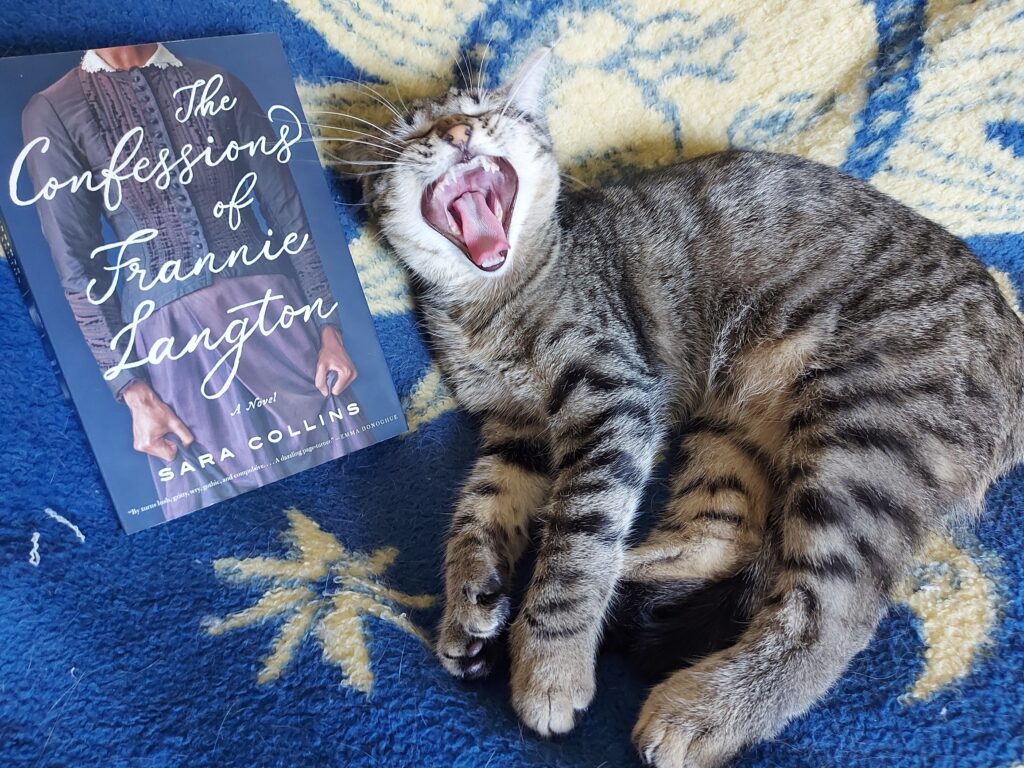The Confessions of Frannie Langton by Sara Collins

My feelings towards The Confessions of Frannie Langton are ambivalent. I do not hate it, but I do not love it either. It was just… okay. If you like historical fiction, you may enjoy The Confessions of Frannie Langton, but I do not think you are missing out if you never read it. The novel is about a Black woman (a former slave) accused of murder, but the slavery aspect of the novel becomes a subplot to the primary narrative of a forbidden relationship between a mistress and her maid. I found The Confessions of Frannie Langton to be a bit boring in the middle, which is too bad because I was interested in reading about a former slave’s life in England during a time when slavery was recently abolished, and slaves were supposed to be considered free people in England.
The Confessions of Frannie Langton is set in the early 19th century. It follows the life of Francis “Frannie” Langton, a house slave from a plantation in Jamaica called Paradise, who can read and write only because her master allowed her to learn as an experiment. When the plantation is destroyed by fire, she is brought to England by her master and gifted to a renowned scientist named George Benham to work as his maid. The novel opens with Frannie being on trial for the murder of Benham and his wife, Marguerite, a crime that she insists she did not commit. She also claims to not remember anything that happened the night they were killed.
The rest of the novel follows Frannie’s “confessions” about her life and how she ended up in a romantic relationship with her mistress, Marguerite, which she is writing down for the benefit of her lawyer. Frannie comes across as an unreliable narrator; it is obvious that there is information she is holding back, information that she knows will make her look not innocent. The Confessions of Frannie Langton gives me vibes of Alias Grace by Margaret Atwood (which is about a maid who is accused of killing her master and his housekeeper but says she does not remember anything; she also comes across as an unreliable narrator) and Fingersmith by Sarah Waters (which I read recently and is about a maid and her mistress who have a love affair).
Because all the first-person narration is told from Frannie’s perspective, the novel is mostly about Frannie’s relationship with Marguerite. Marguerite is an “eccentric” who is prone to fits of “melancholia” (read: depression) and addicted to laudanum. Frannie is also depressed because she thought she would have a new, different life once she left Paradise, but instead she ends up a maid in the household of a man that she hates. Both Marguerite and Frannie find themselves not being able to live to their full potentials because of the very narrow role that women were expected to live in at the time. Frannie’s life is also disadvantaged by living in a racist society. Marguerite starts giving Frannie laudanum and Frannie becomes addicted to it as well. Because Marguerite hardly ever goes anywhere, most of the novel is set in the Benham household, more specifically in Marguerite’s bedroom. Not a lot seems to happen except for Frannie becoming paranoid and jealous when Marguerite is reacquainted with a former Black male servant of hers, who she called Laddie. It is rumoured that Marguerite and Laddie may have had a love affair, that is why he was turned out. The reader never truly gets a sense of Marguerite’s feelings towards Frannie. Does she really love Frannie, or is Frannie just another “pet” for her to play with like Laddie was? The novel barely scratches the surface of a lesbian relationship in the context of the 19th century.
Throughout the novel there are hints of terrible things that happened at Paradise and Frannie’s involvement in them. The novel starts to pick up as it gets closer to the end of Frannie’s confessions, and her trial, when it is eventually revealed what these terrible things are and why Frannie thinks of herself as a monster. I think Frannie is a victim who was forced to do terrible things because she was a slave, terrible things that she regrets, and it is her regret that makes her a sympathetic character. But do not expect any deus ex machina to save the day. The ending is realistic considering the time in which the novel is set and attitudes towards Black people, poor people, and women.